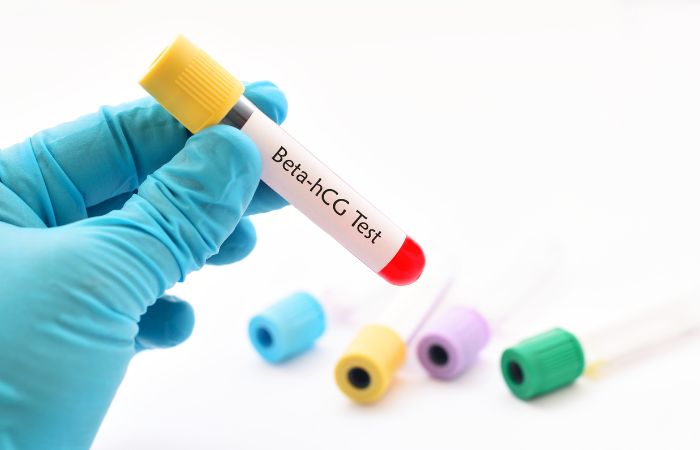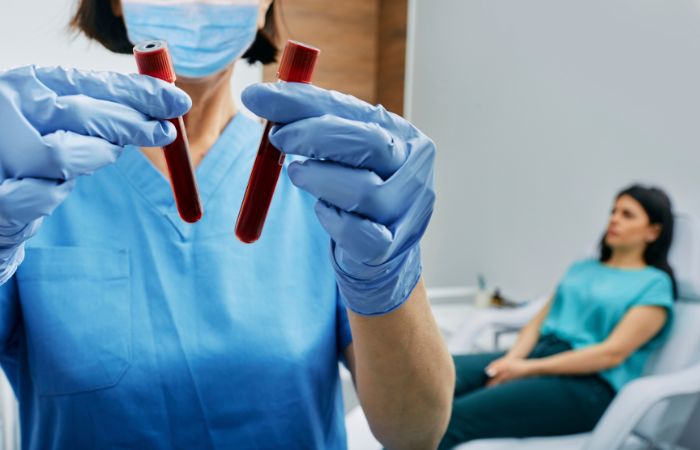
Fertility treatments like In Vitro Fertilization (IVF) have provided hope to countless couples struggling to conceive. One of the most critical aspects of monitoring and confirming pregnancy during IVF is the Beta HCG test. This test plays a vital role in determining the success of embryo implantation and tracking early pregnancy progress.
Beta HCG (Human Chorionic Gonadotropin) is a hormone that the placenta begins producing after embryo implantation. This hormone supports early pregnancy by maintaining the corpus luteum, which secretes progesterone—an essential hormone for pregnancy stability.
In a natural pregnancy, Beta HCG can be detected in the blood about 10 days after ovulation. However, in IVF, this hormone is closely monitored through blood tests to confirm implantation success and ensure that the pregnancy is progressing normally.
The Beta HCG test is a crucial part of IVF treatment for several reasons:
1. Confirms Pregnancy After Embryo Transfer : After undergoing an embryo transfer in IVF, couples anxiously wait to know if the procedure was successful. The Beta HCG test, usually performed 10–14 days after transfer, helps confirm whether the embryo has implanted in the uterus.
2. Tracks Pregnancy Progression : One test can confirm pregnancy, but doctors often repeat the test over a few days to monitor how well the pregnancy is developing. A healthy pregnancy is indicated by a steady rise in Beta HCG levels, which should double every 48–72 hours.
3. Identifies Potential Pregnancy Complications :
Abnormal Beta HCG levels can indicate certain pregnancy-related complications. For instance:
A] If HCG levels rise too slowly, it may signal an ectopic pregnancy (implantation outside the uterus).
B] A brief increase followed by a drop could indicate a chemical pregnancy (early miscarriage).
C] Exceptionally high levels may suggest a multiple pregnancy (twins or more).
4. Helps in Managing Fertility Treatments : For patients undergoing IVF and other fertility treatments, doctors use Beta HCG levels to fine-tune medications and ensure optimal pregnancy support.
For IVF patients, the Beta HCG test is typically performed 10–14 days after embryo transfer. To ensure accuracy, it is recommended to get the test done at a reputable pathology lab for blood test.
If you're in Pune, searching for a pathology lab test in Pune or a near me pathology lab can help you find a reliable diagnostic center.
The Beta HCG test results help determine whether a pregnancy is progressing well. A negative result (HCG below 5 mIU/mL) generally indicates no pregnancy. A positive result (above 25 mIU/mL) confirms pregnancy. However, values between 5 and 25 mIU/mL may require a repeat test to confirm the outcome.
The key factor in interpreting the results is the rate at which Beta HCG levels rise. A healthy pregnancy should show an increase in HCG levels every 48–72 hours. If the rise is slow or inconsistent, further monitoring is required to assess the pregnancy’s viability.

If you need a Beta HCG test, choosing a trusted pathology lab is essential for accurate results. Consider the following factors when selecting a lab:
A] Accurate Testing – Ensure the lab follows strict protocols for blood sample analysis.
B] Quick Results – In fertility treatments, timely test results are crucial for decision-making.
C] Convenient Location – A near me pathology lab makes it easier to access testing facilities.
D] Certified Labs – If you're in Pune, opt for a reputable pathology lab test in Pune that meets quality standards.
A Beta HCG test is a simple blood test that does not require any special preparation. However, to ensure reliable results:
A] No fasting is needed before the test.
B] It’s best to take the test in the morning for consistency.
C] Inform your doctor about any medications, as some may affect HCG levels.
After receiving your Beta HCG test results, here’s what to do next:
A] If the test is positive, celebrate the great news! However, follow-up tests are essential to confirm that the pregnancy is progressing well.
B] If the levels are low or the test is negative, consult your doctor. Sometimes, early pregnancy may not produce high HCG levels immediately, and a repeat test may be necessary.
C] If results are uncertain, your doctor may suggest another test within 48 hours to track changes in HCG levels.
The Beta HCG test is a vital part of the IVF process, helping confirm pregnancy and monitor its development. For those undergoing fertility treatments, timely and accurate Beta HCG testing at a pathology lab for blood test ensures proper monitoring and peace of mind.
If you're looking for a near me pathology lab, choose a well-equipped and certified facility for reliable results. For residents of Pune, a pathology lab test in Pune can provide accurate and timely reports, ensuring that you receive the best care on your fertility journey.
For the best results, always consult your fertility specialist and ensure that your Beta HCG test is conducted at a trusted laboratory. Wishing you a successful and happy pregnancy!